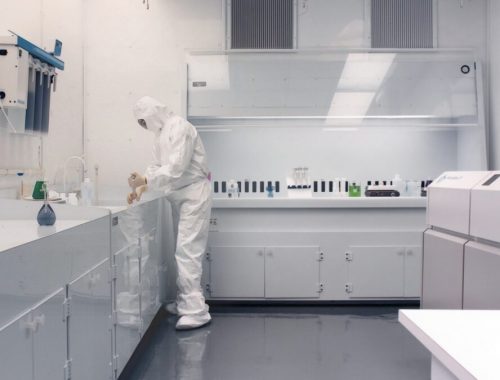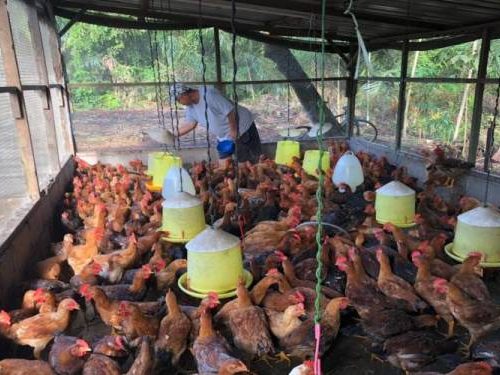Chicken Farm Biosecurity: Ensuring the Health and Safety of our Feathered Friends
As chicken enthusiasts, we understand the importance of maintaining a safe and healthy environment for our feathered friends. Biosecurity, a vital practice in poultry farming, helps protect chickens from diseases and maintain optimal productivity. In this article, we will delve into the world of chicken farm biosecurity, exploring its significance, key practices, and the benefits it brings. So, let’s cluck our way into a world of biosecurity!
Introduction to Biosecurity
Biosecurity can be defined as a set of measures implemented to prevent the introduction and spread of diseases in livestock. It plays a crucial role in minimizing the risk of infectious diseases within a chicken farm, ensuring the well-being of the flock, and preventing significant economic losses.
The Importance of Biosecurity
Implementing proper biosecurity measures is pivotal to maintain the health and productivity of your chicken farm. Here are a few reasons why biosecurity should be a top priority:
1. Disease Prevention
Biosecurity practices act as a defensive shield against diseases and infections. By restricting the entry of pathogens onto your farm, you can significantly reduce the risk of disease transmission among your flock. This not only minimizes chicken mortality but also prevents the spread of diseases to neighboring farms, mitigating potential outbreaks.
2. Financial Stability
An effective biosecurity plan safeguards your investment in the poultry business. Investing time and resources into biosecurity practices can help prevent devastating disease outbreaks that lead to significant losses. By ensuring the health of your flock, you ensure a stable and profitable poultry operation.
3. Food Safety
Biosecurity is not solely about safeguarding chickens; it also plays a crucial role in ensuring the production of safe and healthy poultry products. By implementing biosecurity measures, you actively contribute to the production of safe food for consumers, protecting both animal and human health.
Key Biosecurity Practices
Now that we understand the importance of biosecurity let’s dive into some key practices you can implement to safeguard your chicken farm:
1. Restricted Access
Controlled access to your farm is essential to prevent the introduction of diseases. Establish designated entry points and restrict unauthorized personnel from entering critical areas. Visitors should follow proper biosecurity protocols, such as wearing protective clothing and disinfecting footwear before entering the chicken house.
2. Biosecurity Signage
Displaying biosecurity signage serves as a reminder for everyone working or visiting your farm. These signs should highlight the importance of hand hygiene, protective clothing, and disinfection processes. Moreover, they can remind individuals to report any sick or dead birds to farm management immediately.
3. Quarantine Protocols
Introducing new birds to your existing flock should be done cautiously. Isolate new arrivals in a separate quarantine area to monitor their health and prevent potential disease transmission. Properly screen the birds for any signs of illness before introducing them to the main flock. Remember, prevention is better than cure!
4. Sanitation Practices
Maintaining cleanliness within the chicken farm is crucial for biosecurity. Regularly clean and disinfect the poultry house, equipment, and production areas. Proper storage and disposal of used litter and mortalities should also be practiced to prevent disease transmission.
5. Pest Control
Pests, such as rodents and wild birds, can introduce diseases to your farm. Implement measures to deter their presence, such as sealing entry points, using traps, and ensuring proper sanitation. By maintaining effective pest control, you minimize the risk of diseases entering your farm.
Frequently Asked Questions (FAQs)
Here are some frequently asked questions about chicken farm biosecurity:
1. How often should I clean and disinfect my chicken house?
Regular cleaning and disinfection should be performed between each flock. Additionally, it is recommended to clean and disinfect the poultry house thoroughly at least once a year.
2. Can I use homemade disinfectants for biosecurity?
While homemade disinfectants may have some efficacy, it is recommended to use commercially produced disinfectants approved for poultry farms. These products are specifically designed to target the pathogens commonly found in chicken farms.
3. Should I let my chickens interact with wild birds?
To prevent potential disease transmission, it is best to limit or avoid any interaction between your chickens and wild birds. Wild birds can carry and spread diseases that may be harmful to your flock.
4. Can I reuse chicken litter?
Reusing chicken litter may introduce diseases or infections to your flock. It is advisable to dispose of used litter properly and use fresh litter for each flock.
5. How frequently should I monitor the health of my chickens?
Regular health monitoring should be conducted daily. This includes observing the overall behavior, appetite, and appearance of the birds. Any signs of illness should be reported promptly to the farm management for further investigation.
In conclusion, implementing strong biosecurity measures is crucial for the health and productivity of your chicken farm. By practicing restricted access, maintaining sanitation, and following other key biosecurity practices, you create a safe environment for your flock while preventing the spread of diseases. Remember, biosecurity is a responsibility shared by all poultry farmers, ensuring the well-being of our feathered friends and contributing to the production of safe and healthy poultry products.
- Can I use homemade disinfectants for biosecurity?
- How often should I clean and disinfect my chicken house?
- Should I let my chickens interact with wild birds?
- Can I reuse chicken litter?
- How frequently should I monitor the health of my chickens?
Related posts:
You May Also Like

How Biosafety Cabinet Helps
August 3, 2022
Take Control of Your Money with E-Banking in Malaysia
March 21, 2023

